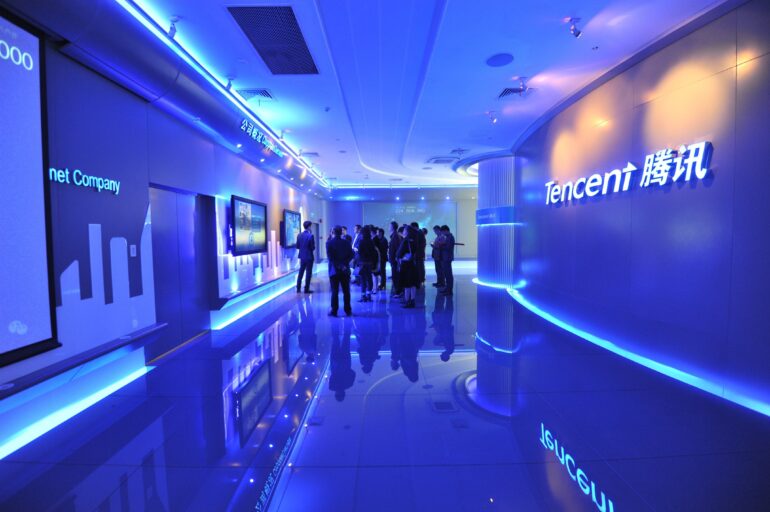TL;DR:
- Tencent, a Chinese internet giant, has entered the competitive AI market.
- They introduced “Hunyuan,” a large language model (LLM) similar to OpenAI’s ChatGPT.
- Over 130 LLMs in China set the stage for intense competition.
- Tencent initially focused on AI cloud services for finance, media, travel, and education.
- Hunyuan plays a pivotal role in over 50 Tencent products.
- It excels in answering science and math-related questions in Chinese.
- Other tech giants like ByteDance and Baidu have also ventured into AI.
- Beijing’s clearance paves the way for commercializing AI technology.
- Market differentiation and targeting specific industries are key challenges.
- Investors show optimism in Baidu’s AI ventures.
Main AI News:
In a bold strategic maneuver, China’s tech juggernaut, Tencent, has declared a veritable “war” on a host of domestic competitors, all vying for supremacy in the burgeoning field of artificial intelligence (AI). This announcement marks a decisive step in Tencent’s quest to emerge as the nation’s unrivaled AI champion. Drawing inspiration from the successes of OpenAI’s ChatGPT, Tencent has unveiled its own formidable large language model (LLM), christened “Hunyuan.”
Tencent’s Vice President, Jiang Jie, made this momentous declaration during a high-profile launch event held in the vibrant city of Shenzhen. Jiang’s revelation of over 130 large language models within China’s borders has set the stage for an impending battle royale among technology enterprises. Renowned for its ubiquitous WeChat super app and extensive gaming endeavors, Tencent has initially set its sights on the enterprise sector. The company is now offering cutting-edge AI cloud services across various industries, including finance, media, travel, and education.
Jiang emphasized Tencent’s unwavering commitment to large language models, portraying Hunyuan as the very linchpin of the company’s operations. With audacious claims, Jiang revealed that Hunyuan serves as the foundational AI model underpinning more than 50 Tencent products. Notable among these is Tencent Meeting, which boasts an AI-powered assistant capable of generating automated meeting notes. Moreover, Hunyuan flexes its muscles in diverse domains, including image creation, copywriting, and customer service.
Tencent’s strategic thrust into the AI sector follows in the footsteps of other tech giants like ByteDance, Baidu, and SenseTime, all of whom have already unleashed their AI innovations. Beijing has recently granted approval to nearly a dozen tech conglomerates, permitting them to bring their AI creations to the masses. This pivotal move provides a conducive environment for honing AI models and commercializing transformative technology.
Jiang made bold assertions during the event, suggesting that Hunyuan outshines OpenAI’s GPT-4 LLM when it comes to tackling science and mathematics-related queries in the Chinese language. To substantiate this claim, he orchestrated live demonstrations, with company personnel posing elementary math problems to the model. While OpenAI enjoys a commanding lead in the United States, the situation in China remains more fluid, with no clear frontrunner emerging among the tech titans, as observed by Boris Van, a software analyst at Bernstein.
However, the road to monetizing AI models based solely on foundational prowess presents a formidable challenge, particularly in a market already saturated with chatbots. Van contends that companies must carve out niche spaces within specific industries to distinguish themselves and unlock the full potential of AI. Despite the obstacles, investor sentiment remains upbeat, with Baidu witnessing a remarkable surge in its stock prices, soaring nearly 20% this year, following the triumphant launch of its Ernie Bot ChatGPT-like service.
Conclusion:
Tencent’s aggressive entry into the AI arena underscores the fierce competition among Chinese tech giants. The emergence of Hunyuan and the broader proliferation of AI models signal an era of innovation and commercialization. Companies will need to carve out specialized niches to thrive in this competitive landscape, while investors remain optimistic about the potential for growth and differentiation in the AI market.

